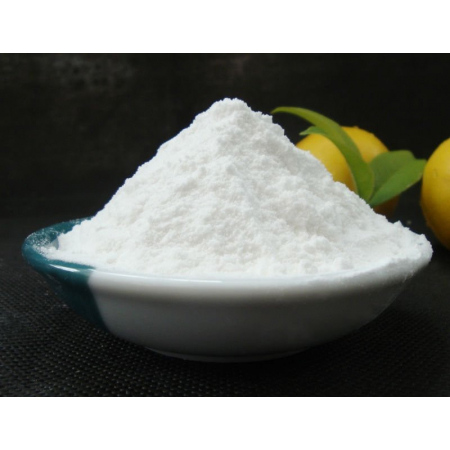
Sugar substitute (2000 servings, the most natural flavor)
The product is based on two components: saccharin and cyclamate.
This product is no longer in stock
Payment
Delivery
Return Terms

Returns are possible within 14 days
if the product has not been opened.
Data sheet
This product has following properties
| Type | powder |
| Country | Ukraine |
| Weight | 100 g |
| Type of packaging | pack |
| Price per serving | 0.45 gr |
Description
The product is based on two components : saccharin and cyclamate. This is really a reasonable tool that makes it possible to refuse harmful refined sugar and at the same time save 4-10 times in price. The latter is due to the fact that this mixture is 200 times sweeter than sugar, so you will only need 50-100 mg of this complex per serving of coffee or tea.
- Price when using sugar - 9 UAH / month (calculation for 30 days, 2 cups of tea of medium sweetness per day, 10 grams per cup, 15 UAH / kg)
- The price of a sweetener (0.5 g) is 2.25 UAH/month ((calculated for 30 days, 2 cups of tea of medium sweetness per day, 50 mg per cup, 75 UAH/100 g)).
Although the amounts per person are small, but tangible with the decline of the sugar industry with the rejection of sugar, which leads to a global propaganda of the harm of sweeteners for many decades around the world.
Saccharin is approved by the Joint Expert Committee on Food Additives (JECFA) , the World Health Organization and the Scientific Committee on Foods of the European Union. Approved in more than 90 countries around the world. JECFA recommends an acceptable daily dose of 5 mg per 1 kg of human body weight (that is, 250-600 mg per day, depending on the person's weight, or 5-12 cups of tea without sugar per day for sweet lovers). It is believed that if this dose is observed, the product does not pose a health hazard. In the 1960s, there were reports that saccharin was supposedly a carcinogen. But at the same time, during the experiment, mice were fed per day with saccharin weighing equal to the mass of the rodents themselves. It is clear that from most products, even natural spices, experimental mice would have simply died from such dosages. Moreover, it turned out that saccharin can counteract the development of an already appeared tumor.
Cyclamate is not absorbed by the body and is excreted in the urine. A safe daily dose is 10 mg per 1 kg of body weight (or 500-1200 mg per day). Sodium cyclamate is registered as a food additive and allowed in more than 55 countries (including the countries of the European Union). At the same time, some people have bacteria in their intestines that are able to process sodium cyclamate with the formation of metabolites that are conditionally teratogenic, so it is prohibited for pregnant women (especially in the first 2-3 weeks of pregnancy). But at the same time, it should be noted that refined sugar does much more harm to the body than any sweetener used in the food industry.
Aspartame is available under various brand names, either alone or in blends of sweeteners. Aspartame is the second most popular sweetener and is found in a wide variety of foods and drinks, including: soft drinks, hot chocolate, chewing gum, candy, yogurt, sugar substitutes, vitamins, cough suppressants, and more.
It is also available in the form of tablets (1 tablet corresponds to 3.2 g of sugar in terms of sweetness) and is used for diabetes, obesity and other diseases that require limiting or eliminating sugar intake.
Aspartame in the human body breaks down into two amino acids (aspartic and phenylalanine), as well as methanol (the amount of which is harmless at a dosage of up to 50 mg / kg of human weight).
For this reason, this product is not recommended for people with PKU.
A large number of toxicological and clinical studies of aspartame confirm its harmlessness if the daily dose does not exceed 50 mg per kilogram of body weight. In Europe, the maximum is set: 40 mg per kilogram of body weight per day. Practically 40 mg/kg of body weight for a 70 kg person means about 266 tablets of synthetic sweetener or 26.6 liters of cola in one day.
The use of complex sweeteners minimizes any risks of these consequences.
Acesulfame (potassium salt of 2,2-dioxide 3,4-dihydro-6-methyl-1,2,3-oxathiazin-4-one) - easily soluble in water, about 180-200 times sweeter than traditional cooking sugar.
It is used to sweeten carbonated drinks, in the manufacture of pastries, gelatin desserts and chewing gum, and is also used as a sweetener in some dosage forms (syrups).
As always, in some media there was a fight against this product, which was actively supported by the industrialists of classical raw materials. Sweetener publications often claim that acesulfame can cause cancer (according to 1970 studies), however, 9-month toxicology studies showed no association between acesulfame use and the likelihood of tumors.
The maximum allowable daily intake of acesulfame potassium is 15 mg/kg of human body weight. The supplement is easily resorbed, not metabolized and rapidly excreted through the kidneys. The half-life in the body is 1.5 hours, which means that the accumulation of acesulfame potassium does not occur. Acesulfame potassium is not involved in metabolism and does not cause caries. Acesulfame Potassium is considered safe and approved for use in most parts of the world, alone or in combination with other sweeteners. The sweetener is also allowed for retail sale. The opinion that the regular use of products containing this sweetener can cause significant harm to a person has been refuted.

Recommendations:
Adjust the serving to suit your sweetness using the blade of a knife as a measuring spoon, the average serving is 50mg or 4mm^3.
Contraindications : do not use during pregnancy and lactation, people with a disease.
